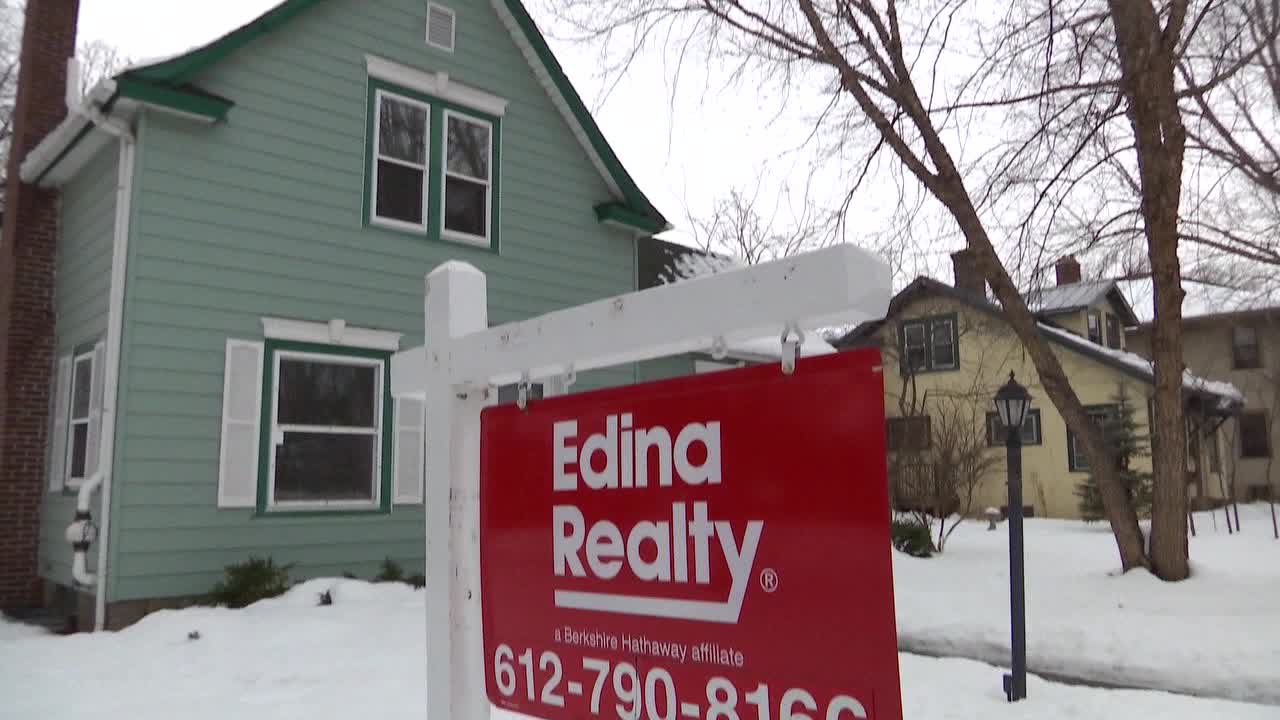First-generation homebuyer programs gain momentum across Twin Cities metro
[anvplayer video=”5160771″ station=”998122″]
The Minnesota Legislature is considering a bill to create a pilot program to support first-generation homebuyers. There are already several local communities with similar initiatives in place, including Edina, Woodbury, St. Louis Park and Ramsey County.
Ramsey County launched its first-generation home buyer assistance in September as part of its new FirstHome program.
The FirstHome program started in 2000 with federal Home Investment Partnerships Act funding to provide first-home down payment assistance. Interest in the program declined in 2021 and 2022, however, so the county decided to revamp the program. It now includes both a first-time homebuyer program, as well as the first-generation program.
“We know that we have one of the largest racial homeownership gaps between white and Black households in the country, so we have to focus on first-generation people or households, and we also had to focus on people who are 80% [Area Median Income] AMI or below,” said Portia Jackson, Ramsey County’s community development specialist.
“I just felt there were a lot of people out there that could afford a home but because of that generational extraction of assets and lack of wealth-building that they didn’t have the capital to get to that,” she added.

(KSTP)
The response has been overwhelming since it launched on Sept. 29.
“We get 30 inquiries a day for this program,” Jackson said. “We have exceeded our goals for the last quarter of 2022, and we’re probably a third of the way through our goal for 2023.”
The county has helped nine families with down payment assistance, and the majority of those recipients participated in the first-generation homebuyer program, according to Jackson.
Interested first-generation buyers can apply for a loan up to 25% of the purchase price to go towards the down payment or closing costs. The maximum they can receive is $93,150, which reflects a $372,600 purchase price.
The loan is forgiven at 5% per year for a 20-year program.
Jackson explained this formula allows the program to adapt to the ever-changing housing market. It also gives homebuyers the flexibility to eventually sell the property.
“On average most people sell their houses within seven years and we didn’t want to set up a program that says you can’t do anything,” Jackson said. “We want people to not only have an affordable payment but we also want them to have that wealth generation that’s been extracted from some communities for many, many generations.”
A report from the Federal Reserve Bank of Minneapolis shows Black homeownership rates are about 50% lower than white homeownership rates in Minnesota, a gap that has widened over the years. The report attributes the disparities to racial covenants, redlining and other past discriminatory practices.
“I think as a region and as a state, we are really understanding we do need to do something because it is policy that has gotten us in this place where we have such bad disparities in homeownership and we need to remedy that,” said Marney Olson, the Saint Louis Park housing supervisor.
She explained St. Louis Park launched its first-generation homebuyer program at the end of 2021.
“For this program, you need to be a first homebuyer and the way we define first-generation homebuyer is you have never owned a home and your parents have never owned a home,” Olson said.
The loan amount varies based on the household’s income and the purchase price of the home. The loan is forgiven at 5% over a 20-year owner-occupancy period.
As in Ramsey County, homebuyers in St. Louis Park have the flexibility to move.
“This may not be the home you want to be in for 20 years, or your life circumstances may change and you need to move,” said Olson.
The city had its first loan close at the end of September 2022.
“We’ve had a lot of interest from potential homebuyers,” she said. “We definitely want to connect with people, we do have funds available.”
Both St. Louis Park and Ramsey County require participants to go through homebuyer education, including financial counseling.
Jackson said the benefits of increasing homeownership will trickle down to other renters.
“We want to move those folks out of those rental spaces that may be affordable so another family might be able to move into those spaces,” said Jackson. “We hope this homeownership will be an intergenerational thing going forward.”
Both Jackson and Olson hope the legislation moves forward.
“I’m just really excited to see what’s on the horizon,” said Jackson.